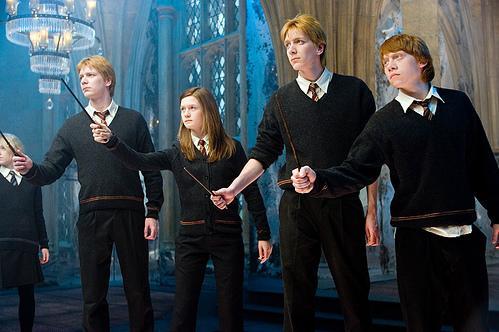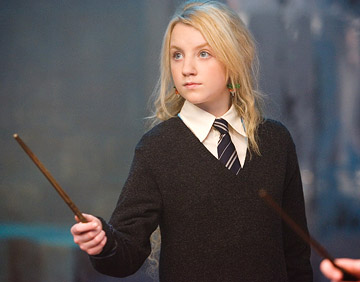In the previous part of this series, we analyzed what the average response to the survey looks like, so that we could use that as a base on which to calculate the variance introduced by the various houses. As a refresher, this is what it looked like:
“The average Harry Potter reader who completed this survey has a strong tendency towards Introverted Focus (81%), Intuitive Information Intake (85%), Decision-making through Feeling (54%) and Outer Actions through Judging (51%).”
Before we start, I should clarify what some words will mean in this context. I have defined the values as follows, based on the deviation from the base:
- A deviation between 0% and 1.5% is considered neutral – there’s no tendency towards either value
- A deviation between 1.5% and 4% is considered slight – there’s a tendency but it’s not marked
- A deviation between 4% and 7% is considered moderate – a marked tendency
- A deviation between 7% and 10% is considered strong – can be safely assumed to be a normal case
- A deviation above 10% is considered very strong – the impact cannot be understated
So what does each individual house bring to the table? Without further ado, let’s jump straight into it.
Gryffindor
In Harry Potter lore, the Hogwarts House of Gryffindor is described as “[the house] where dwell the brave at heart; their daring, nerve, and chivalry set Gryffindors apart“. Founded by Godric Gryffindor, with a lion as its crest and the colors of red and gold, Gryffindor is the house which most values the virtues of courage, bravery and determination.
So we see straight from the outset how the house focuses on certain personal traits with a tendency towards the unknown, the outside world – daring, nerve, courage. Gryffindors are people who thrive in facing unknown situations, who take risks, who take the leap while others are still observing the gap. They do not hesitate, they do not falter, but much like Harry himself, are the living embodiment of the phrase “when the going gets tough, the tough get going”.
In this survey, 104 people were Gryffindors, roughly 20% (20.35 to be exact). As we said before, the numbers themselves for each personal trait tell us very little about Gryffindor, as they are still biased towards the general readership – taken on their own, Gryffindors would be INFPs, a perception heavily skewed by the strong INFJ nature of all readers.
However, when we contrast them against our “base” person, the nuances of the house take shape and make themselves known. Gryffindor has the highest extrovert-to-introvert ratio out of all houses at almost 24%, which is 5% more than the usual ratio (which was 19%). This aligns with the bold nature the house describes, as does the next value, which is a slight tendency towards Sensing Information Intake (18.2% against the base of 15.4%). It makes sense that they are biased towards Sensing, as the alternative (intuition) concerns itself more with the possible branching outcomes and big picture side of things, while Gryffindors tend to be more worried about the situation at hand.
The next value of note is the very strong tendency towards Decisionmaking through Feeling (67.3% against the base of 54.6%). Gryffindors thrive in the heat of battle, in spur of the moment decisions – they are quick to act, don’t hesitate, and, as evidenced by Harry’s attitude towards Snape in the end, value forgiveness and intentions above the cold facts of their actions. As a final defining characteristic, they also lean moderately towards Perceiving (53.8% against the base of 48.7%). The house of red and gold doesn’t see inherent value in rules and deadlines, as Harry and his crew make abundantly clear throughout the books. They make their own way according to their own perception, and stick to it. They are the house which lean the most towards this Perceptive aspect of personality.

In a nutshell, we could describe Gryffindors as follows:
“Gryffindor has a moderate tendency towards Extroverted Focus, a slight tendency towards Information Intake through Sensing, a very strong tendency towards Decisionmaking through Feeling and a moderate tendency towards Outer Perception.”
The typical Gryffindor would, therefore, be an ESFP.
Ravenclaw
The house of Ravenclaw, meanwhile and as should be expected, is a departure from Gryffindor. The house of blue and bronze, “where those of wit and learning will always find their kind“, was founded by Rowena Ravenclaw, and cherishes wit, learning, and wisdom above all else. This is embodied by the message etched in its founder’s diadem: “wit beyond measure is Man’s greatest treasure”.
There can be no shade of doubt that the house heavily seeks people who are logical, who treasure reason, and who make sure to have every step of the way thought out – the scholars. Ravenclaws are bright people, studious, with a focus on the academical. As is usually the case with such people, eccentricities and interesting ways to face a problem will invariably arise, which is a trait the house cherishes, as seen in people such as Luna Lovegood.
Our survey sees Ravenclaw taking the Hogwarts House Cup for Highest Attendance, as 179 Ravenclaws took to answering our survey, a neat 35% of the total. It is to be expected that they would therefore influence the base reader a lot, but the results are surprising by themselves. Let’s have a look.
Ravenclaw’s Focus just about edges towards Introversion in a slight manner (82.7% against the base of 81%) but it’s significant enough to note. The small difference is indicative not only of the big amount of people that they provide to our base readership, but also a testament of how intelligence and wit are not only reserved to the quiet library mice; rather, there are many extrovert Ravenclaws (such as Gilderoy Lockhart) who also have their fair share of wit. Out of all Hogwarts houses, Ravenclaw is the least defined by Focus.
The first really defining characteristic of Ravenclaw arises when we look at information intake. No other house leans so strongly towards intuition – a staggering 88.8% percent of Ravenclaws share that trait, as compared to our average of 84.5%, basically 9 out of 10 Ravenclaws are Intuitive learners. They focus on the big picture, have a tendency towards the poetic, and enjoy ideas and concepts for their own sake, without them having to lead to any particularly practical scenario.
The final two values also show tendencies, especially a strong tendency towards thinking (52.5% against the base of 45.4%). This should come as no surprise – Ravenclaw’s very definition makes a strong emphasis on logical reasoning, cold facts, argumentation and levelheadedness, traits embodied very much by a Decisionmaking through Thinking preference. As a final trait, Ravenclaw seems to have a slight preference on Perception (50.8% against the base of 48.7%) – it’s not a very significant difference, and it’s quite a surprising result at first sight. How could the logical Ravenclaws not see inherent value in planning and rules? But a deeper look reveals what is hidden, and it’s where the tolerance for eccentricity comes out. Ravenclaws are quirky, and their Perception preference is where this penchant for oddity finds its root.
So we could define a Ravenclaw as follows:
“Ravenclaw has a slight tendency towards Focus, a moderate tendency towards Information Intake through Intuition, a strong tendency towards Decisionmaking through Thinking and a slight tendency towards Outer Perception”
Our typical Ravenclaw, therefore, would be an INTP.
That about wraps it up for today. Make sure to join us soon when we post our findings about the houses of Hufflepuff and Slytherin, before moving in to Ilvermorny.







The typical gryffindor is an estx. The house is masculine af. Gryffindors are willful and strong as well as brave which doesn’t apply to most esfps.
LikeLike
Your reasoning for feeling over thinking didn’t make sense. Estps are impulsive af but still thinkers. They do what they want because they are madculine not because they are following their heart per say.
LikeLike
I meant masculine. It sucks that i can’t edit posts here.
LikeLike
I’m a Ravenclaw-Gryffindor hatstall who genuinely can’t decide which house suits me best, and an ENTP, so this checks out I guess. Definitely not an introvert though lol.
LikeLike